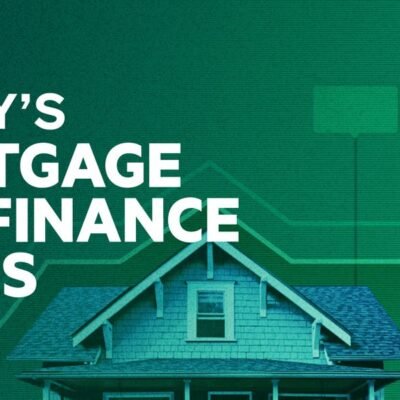By Jess Sharp, Money team
While putting a fiver on your football team to win at the weekend sounds like a bit of harmless fun, it could actually scupper your chances of getting a mortgage.
Lenders have always been cautious when it comes to approving mortgages, but some brokers have noticed that even the odd gambling transaction is now viewed as a red flag.
Typically, borrowers will be judged on a range of factors, including their income, age, credit utilisation and payment history, when they submit a mortgage application.
The exact requirements to be approved for a mortgage can vary depending on the lender.
Joe Childes, mortgage adviser at Right Choice Mortgages, told the Money team that he had recently seen banks declining applications based on gambling transactions on clients’ bank statements, even if it’s just the odd flutter.
“The tolerance for gambling transactions seems to vary from lender to lender,” he said.
“We have seen cases declined where clients have separate accounts for placing bets, but even just those who bet on the football at the weekend.
“Gambling transactions can be questioned by the underwriter, or in some cases we have seen straight declines with no grounds for appeal.”
On LinkedIn, he raised one case where his clients had filed a joint application, had no forms of credit in the background and were asking for a mortgage of less than 50% loan-to-value ratio, but were declined twice.
The pair were never in their overdraft and had £5,000 in their current account.
“These are football bets only, and just present on one statement out of the past three. Affordability for the level of transactions seen is not a concern,” he said.
He questioned whether banks would make the same decision for those who excessively drink or smoke, or those who go to their local bookies and use cash to place bets.
“If the client can afford the spending, is it right to dictate how they use their hard-earned money?” he asked.
What bets could cause an issue?
Mr Childes said it was “habitual spending” on betting that appeared to spark most concern with lenders, even if clients could easily afford how much they were putting down.
“For some clients, betting on the football, for example, can be a hobby and the amount spent is not excessive in relation to their income,” he said.
“However, we have seen applications from these clients declined even where the clients are not under financial pressure and can maintain the level of spending.”
People should be aware that underwriters will review their bank statements when they apply for a mortgage, and gambling transactions are likely to be questioned.
“If the number of transactions seen through your account are considered to be excessive, this could lead to your mortgage application being declined,” Mr Childes said.
Lenders haven’t been able to clarify what their “tolerance level” for gambling is, he added, with many saying it is assessed on a case-by-case basis.
The major lenders’ gambling policies
We asked all the major lenders to explain their gambling policies to the Money team – here’s what they said:
Santander
The high-street bank doesn’t have any specific gambling related policies for mortgage customers.
Instead, it undertakes affordability assessments when considering new mortgage applications.
This includes an assessment of a customer’s bank statements, which considers all their outgoings to make sure monthly repayments are affordable.
Barclays
Barclays said it did not have any set rules when it comes to gambling: “We ensure all mortgages are affordable before we offer them, including testing at higher interest rates.”
Nationwide
As a “responsible lender”, Nationwide said it aimed to ensure customers can afford their mortgage payments now and in the future.
It said each application was assessed on a case-by-case basis, taking a range of factors into account to determine how much can be borrowed.
We also contacted HSBC, Natwest and Lloyds – but they didn’t get back to us.
What should you do?
If you think your gambling habits might be causing you a problem, there are steps you can take.
Matt Zarb-Cousin, co-founder of gambling blocking software Gamban, said people should start to look at their behaviour if they are chasing losses, preoccupied with gambling and thinking about their next bet, and losing interest in other activities.
“These behaviours will often lead to such significant loss-chasing in a gambling session that it causes significant financial harm that can impact you for weeks or even months,” he said.
“Being able to spot the signs before it reaches that point, and quitting, can prevent this from occurring in the first place.”
If you want to quit online gambling, talkbanstop.com offers free tools and support.
Banks also offer the option to block gambling transactions, which provides another layer of friction that can help prevent relapse, Mr Zarb-Cousin said.
“Gambling transactions can affect mortgage applications, but the primary concern of lenders is you’re not getting into debt to fund gambling,” he said.
He pointed out that lenders often look at bank statements from the past three to six months, so even quitting for that amount of time before applying could put you in a better position.





